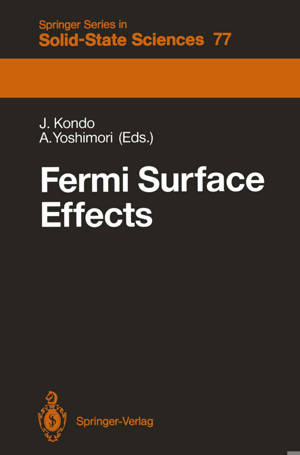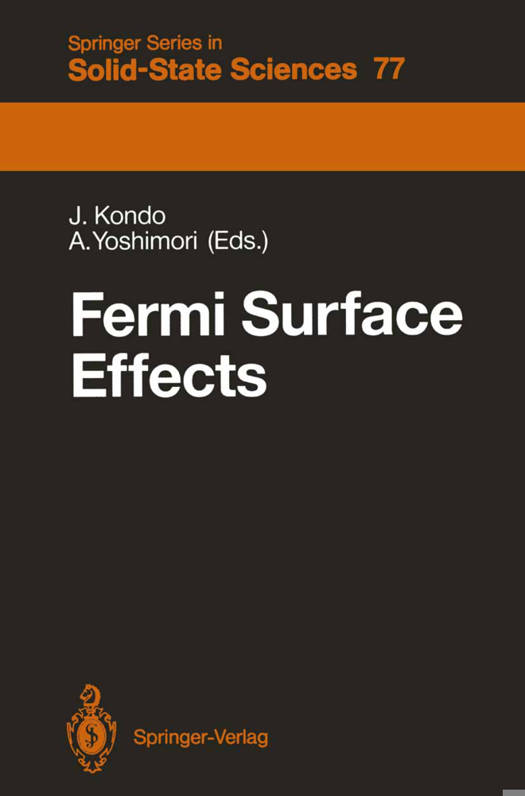
- Afhalen na 1 uur in een winkel met voorraad
- Gratis thuislevering in België vanaf € 30
- Ruim aanbod met 7 miljoen producten
- Afhalen na 1 uur in een winkel met voorraad
- Gratis thuislevering in België vanaf € 30
- Ruim aanbod met 7 miljoen producten
Zoeken
Fermi Surface Effects
Proceedings of the Tsukuba Institute Tsukuba Science City, Japan, August 27-29, 1987
€ 145,19
+ 290 punten
Omschrijving
This volume is the proceedings of the Tsukuba Institute '87 on Fermi Surface Effects, which was held August 27-29, 1987, at Tsukuba Science City in Japan. The topic of the Institute, Fermi surface effects, is one of the fascinating subjects of solid-state physics. It has been known since Sommerfeld's work that the conduction electrons of metals constitute a degenerate Fermi system, and it has also been recognized that the occu- pation number of the electron states has a discontinuity across the Fermi surface. Several basic properties of metal electrons stem from this fact. Furthermore, it gives rise to a singular response of the metal electrons to local and dynamical perturbations of low frequency. Such singular behav- ior of the metal electrons is called a Fermi surface effect. In his opening address, printed as the Foreword, Professor R. Kubo described Fermi sur- face effects as due to "wild" behavior of the metal electrons. The Institute co sisted of five invited lectures, each of which was two hours long and dealt with theoretical aspects of a subject related to Fermi surface effects. Each lecturer is an expert in the field, and gave an in- tensive treatment of his own subject. The experiment of inviting only very few lecturers and allotting them ample time for both presentation and discussion seems to have been successful. This Institute, which was sponsored by the Japan Industrial Technology Association, will probably be followed by other institutes, forming a series.
Specificaties
Betrokkenen
- Uitgeverij:
Inhoud
- Aantal bladzijden:
- 141
- Taal:
- Engels
- Reeks:
- Reeksnummer:
- nr. 77
Eigenschappen
- Productcode (EAN):
- 9783642834271
- Verschijningsdatum:
- 25/12/2011
- Uitvoering:
- Paperback
- Formaat:
- Trade paperback (VS)
- Afmetingen:
- 156 mm x 234 mm
- Gewicht:
- 226 g

Alleen bij Standaard Boekhandel
+ 290 punten op je klantenkaart van Standaard Boekhandel
Beoordelingen
We publiceren alleen reviews die voldoen aan de voorwaarden voor reviews. Bekijk onze voorwaarden voor reviews.







